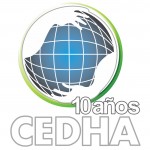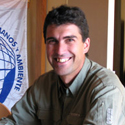Esta entrada también está disponible en: Spanish
 SIDE EVENT RIO+20 Trends and Conflicts in the Extractives Sector: Designing Public Policy for a More Sustainable Future
SIDE EVENT RIO+20 Trends and Conflicts in the Extractives Sector: Designing Public Policy for a More Sustainable Future
Date & Time Slot: 19 Jun 2012, 19:30 – 21:00
Venue: T-5 (capacity 60) (RioCentro, Rio de Janeiro, Brazil)
Contact: Jorge Daniel Taillant, [email protected]; tel (+54) 9 351 507 8376
Discussion Language: English (Spanish-Friendly)
Please SEND publications and requests to present to: [email protected]
Description of the Workshop
The real and perceived social and environmental impacts of extractive industries are today presenting a monumental global challenge, to balance sustainable growth with the inevitable depletion and massive use of natural resources, all of this while attempting to guarantee a safe and healthy environment for affected communities and other stakeholders.
Countries receiving much of the global investment occurring today for mining prospecting and extraction, have in many cases shown that they are unprepared from a policy and management perspective to tackle the challenges of providing socially and environmentally effective investment frameworks, proper policy guidance, monitoring systems, or reporting mechanisms to ensure a more sustainable approach to extractive operations. Mining companies meanwhile, have made a strong push to offer Corporate Social Responsibility-type responses to concerned stakeholders in local communities. This formula however, is not working.
This workshop brings together actors with vast experience in government policy, corporate management and civil society that are shaping and influencing public and corporate policy, legislation, institutional design, and civil society opinion concerning the evolution of the extractive industry. The panel will explore the limits of the present state of the art of the sector in terms of public policy choices, due diligence responses (or lackthereof) from both the private and public sectors.
The objective of the workshop is to promote a frank debate about what is working and not working in the extractive sector, exchange views on persistent barriers which derive from poor policy and management design and implementation, and reflect on ways to improve the articulation and interrelation of policy, institutions, management, and stakeholders, towards the construction of a more transparent, effective and sustainable future of the extractive sector.
Tentative Agenda
19:30 – 19:45
Introduction – Presentation – Workshop Objectives
19:45 – 20:00
Jorge Daniel Taillant. (CEDHA)
Trends, Policy and Structural Design which Lead to Conflict
20:00 – 20:15
Alejandro Rossi (Ecojure)
Democratization and Standardization of Environmental Procedures in the Extractive Sector: Towards Better Governance
20:15 – 20:30
Ben Peachey (Int’l Council on Mining and Metals, ICMM)
The Role of Mining Companies in Contributing to Sustainable Development
20:30 – 20:45
Caroline Digby (Eden Project)
Mapping the Way Forward
20:45 – 21:00 Discussion
Target Audience
Policy makers, community representatives, civil society organizations, corporate actors, interested or concerned with the extractive industry and with a view to creating a more rational and more socially and environmentally sustainable context for the extractive sector.
Host Organization
 Center for Human Rights and Environment (CEDHA) has a program dedicated to the extractive industry, called, Mining, Environment and Human Rights aimed at reducing the social and environmental impacts of mining activity. CEDHA recently launched MINLAC, a regional and collaborative project with other groups in the region, mapping mining projects in the Latin American and Caribbean region, compiling mining legislation, and diverse information about international, national and local policies related to the extractive sector. CEDHA is focused on revealing social and environmental impacts of irresponsible corporate behavior in the extractive sector, but is also working to create more effective channels of access to information, and guidance documents for mining companies and State actors to better design and control mining activity, as a new initiative in which CEDHA Is drafting an international Protocol for Mining Operations in Glacier Areas.
Center for Human Rights and Environment (CEDHA) has a program dedicated to the extractive industry, called, Mining, Environment and Human Rights aimed at reducing the social and environmental impacts of mining activity. CEDHA recently launched MINLAC, a regional and collaborative project with other groups in the region, mapping mining projects in the Latin American and Caribbean region, compiling mining legislation, and diverse information about international, national and local policies related to the extractive sector. CEDHA is focused on revealing social and environmental impacts of irresponsible corporate behavior in the extractive sector, but is also working to create more effective channels of access to information, and guidance documents for mining companies and State actors to better design and control mining activity, as a new initiative in which CEDHA Is drafting an international Protocol for Mining Operations in Glacier Areas.
Presenters
Alejandro Rossi is an attorney, and has focused his career on  environmental management. He served as Secretary General of the Matanza Riachuelo River Basin Authority (ACUMAR), Programme Manager of United Nations Office for Project Services (UNOPS) in Argentina, and Chief Technical Advisor of UNEP-UNOPS Project for Technical Assistance for Environmental Impact Assessment of mining projects in Peru. He is Executive Director of recently launched environmental think tank ECOJURE.
environmental management. He served as Secretary General of the Matanza Riachuelo River Basin Authority (ACUMAR), Programme Manager of United Nations Office for Project Services (UNOPS) in Argentina, and Chief Technical Advisor of UNEP-UNOPS Project for Technical Assistance for Environmental Impact Assessment of mining projects in Peru. He is Executive Director of recently launched environmental think tank ECOJURE.
Ben Peachey is the Communications Director at International Council on  Mining and Metals (ICMM). He manages ICMM’s communications team, whose remit includes stakeholder relations, media relations, events management and the production of publications. Previously he has worked as a communications consultant at the global engineering consultancy Arup, where he advised a senior management board responsible for a global sector of 1,000 staff on a broad range of communications issues. He also spent seven years at the BBC, where he worked as an online journalist for the Newsnight and Panorama programs.
Mining and Metals (ICMM). He manages ICMM’s communications team, whose remit includes stakeholder relations, media relations, events management and the production of publications. Previously he has worked as a communications consultant at the global engineering consultancy Arup, where he advised a senior management board responsible for a global sector of 1,000 staff on a broad range of communications issues. He also spent seven years at the BBC, where he worked as an online journalist for the Newsnight and Panorama programs.
Caroline Digby joined the Eden Project to develop the Post Mining Alliance develop better solutions to the problems of mining legacy and mine closure. Prior to Eden, Caroline worked at the International Council on Mining and Metals and the International Institute for Environment and Development on projects to improve the environmental and social performance of the mining industry worldwide. Her particular focus for the last ten years has been on the socio-economic aspects of development, effective community engagement and the role of partnerships in delivering better outcomes.
Jorge Daniel Taillant is founder and Executive Director of the Center for  Human Rights and Environment (CEDHA). He has worked for organizations such as the World Bank, EU and United Nations. He coordinates CEDHA’s Mining, Environment and Human Rights Program, focusing on improving access to justice in mining conflicts to reduce social and environmental impact of mining, while also assuring more efficient public policy to control and regulate mining.
Human Rights and Environment (CEDHA). He has worked for organizations such as the World Bank, EU and United Nations. He coordinates CEDHA’s Mining, Environment and Human Rights Program, focusing on improving access to justice in mining conflicts to reduce social and environmental impact of mining, while also assuring more efficient public policy to control and regulate mining.
Side Event Presentations
Mining’s Contribution to Sustainable Development. By Ben Peachey
Democratization and Standardization of Governance: Trustworthy Mining. By Alejandro Rossi
Trends and Conflicts in the Extractive Sector: Public Policy for a More Sustainable Future. By Jorge Daniel Taillant
Other Side Event Documents
Extractive Industries Transparency Initiative: Rules (2011)
Mineral Resource Tenders and Mining Infrastructure Projects Guiding Principles (2011)
World Bank Extractive Industries Review 2011
Integrating Human Rights Due Diligence Into Corporate Risk Management Processes (ICMM)
Measurement, Reporting, and Verification and the Mining and Metals Industry (ICMM)
Voluntary Principles on Security and Human Rights
Finance, Mining and Sustainability (World Bank, UNEP et.al.)
Responsible Mining: The Key to Profitable Resource Development (by Robert Goodland, 2012)
